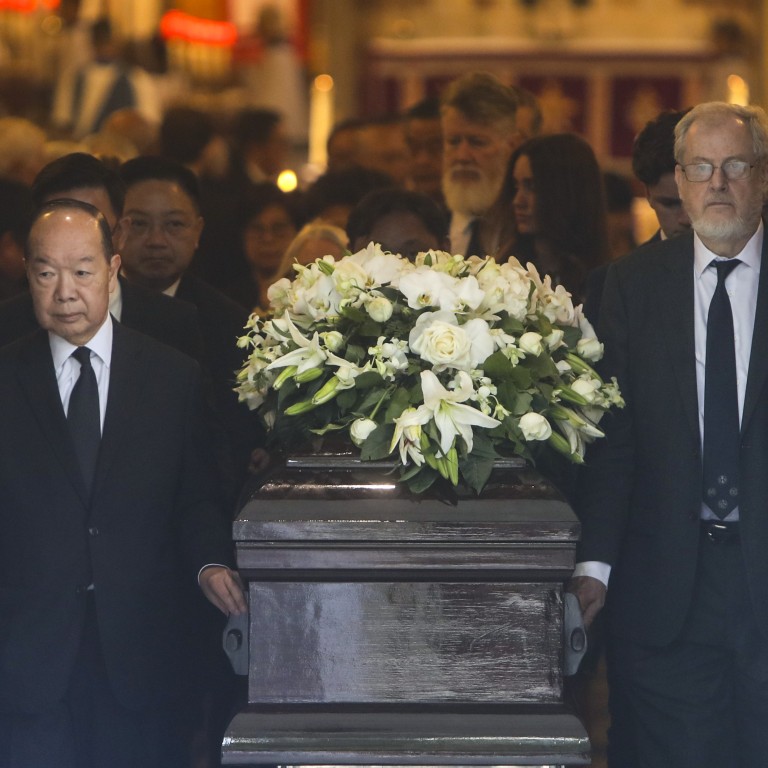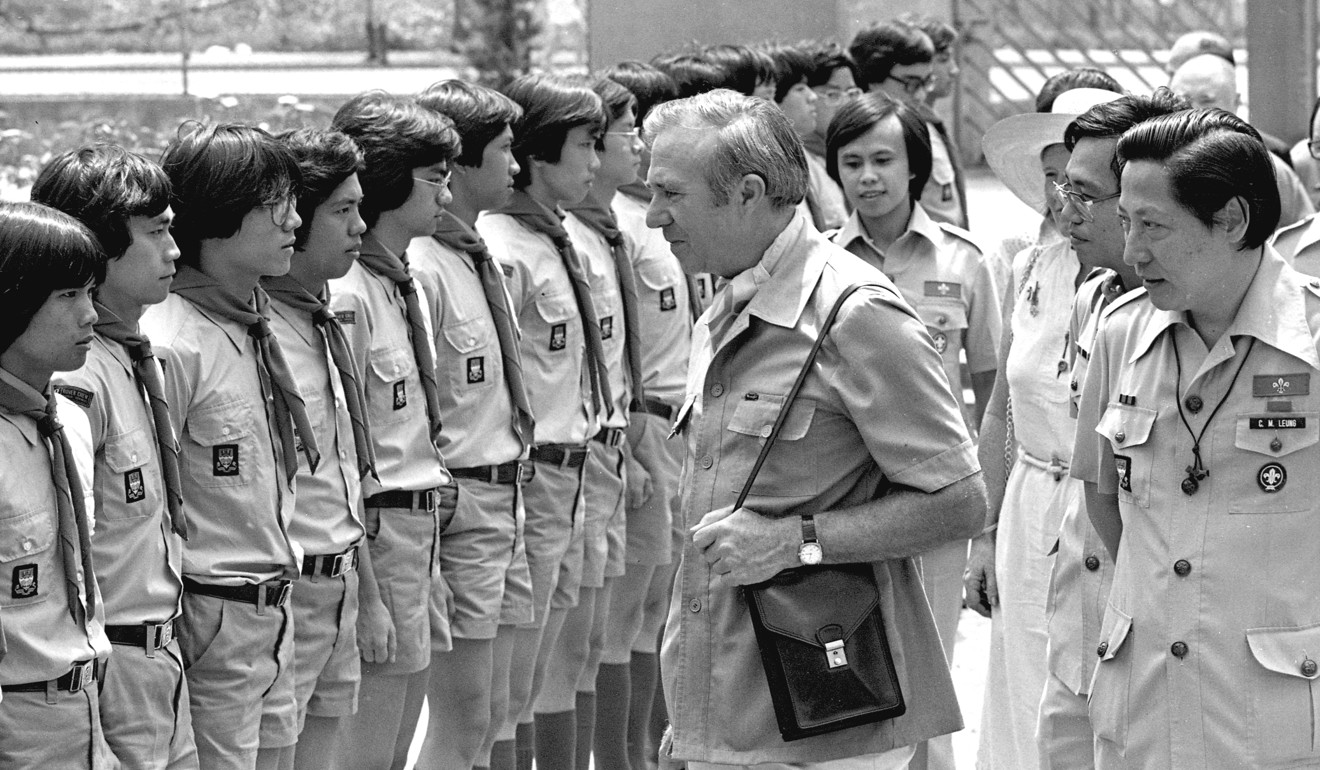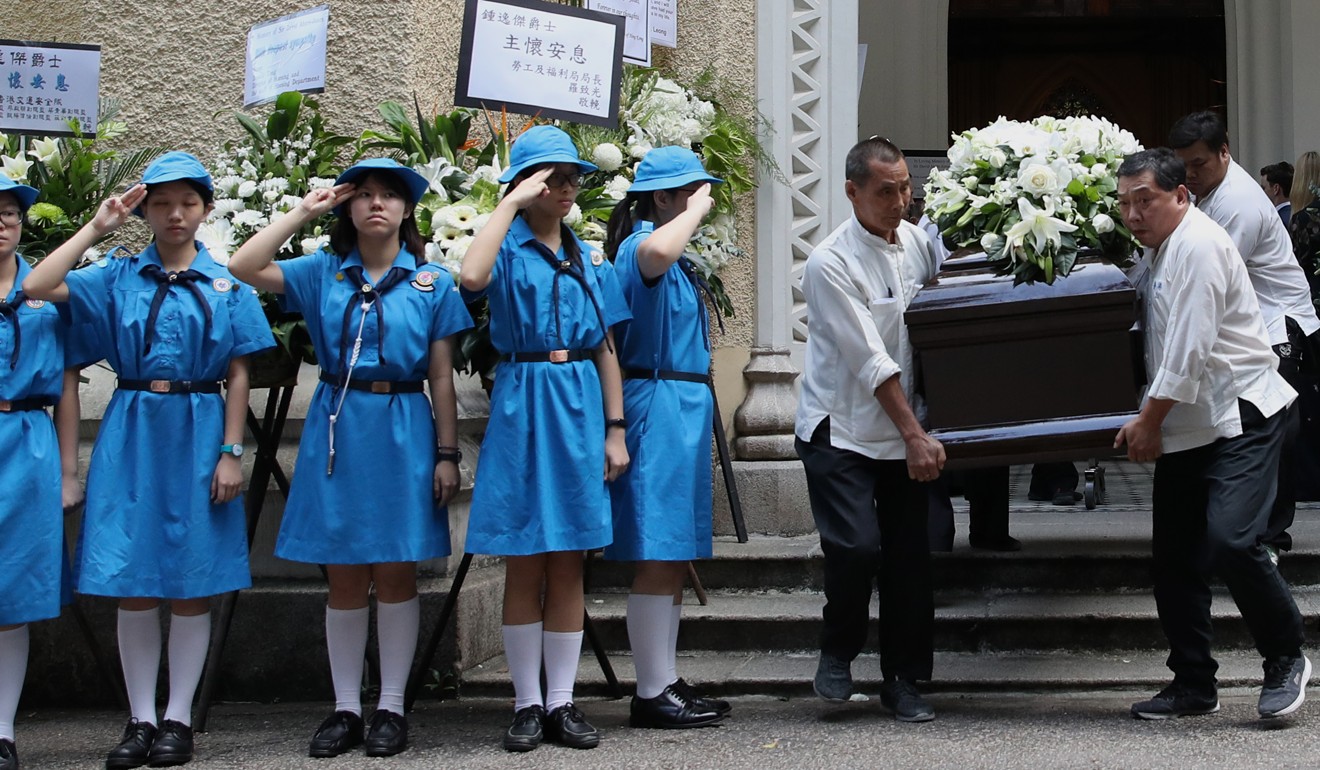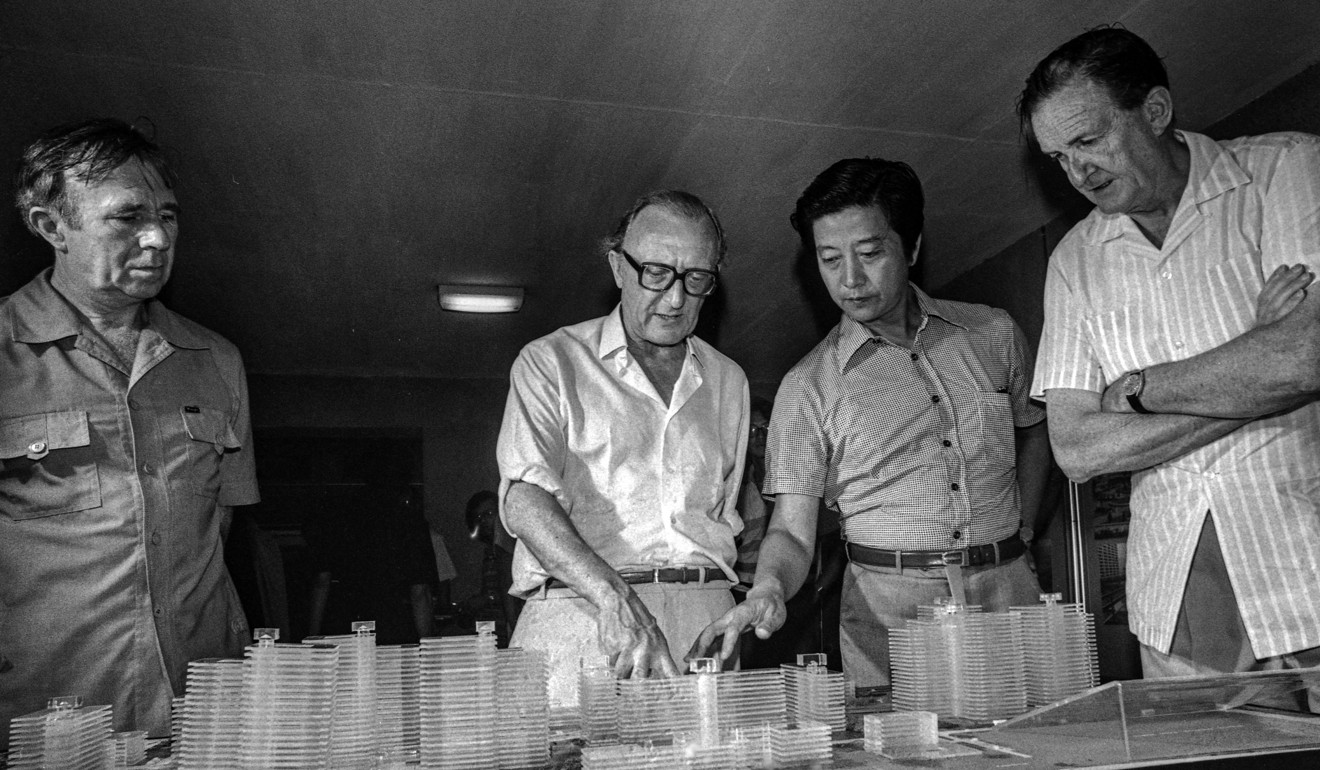
‘He was saddened in his last days by what was happening to Hong Kong’: Carrie Lam gives emotional eulogy at funeral of David Akers-Jones, former No 2 colonial official
- Chief executive reveals last wishes of former chief secretary, who died of colon cancer at the age of 92 in September
- Political and business heavyweights attend St John’s Cathedral service to pay tribute to luminary
Even in his final days on his sick bed, David Akers-Jones, Hong Kong’s former chief secretary under British colonial rule, continued to be troubled by the months-long protest crisis in the city, urging leader Carrie Lam Cheng Yuet-ngor to “help the poor” and build more homes.
The last wishes of the former No 2 official were revealed by Lam in her eulogy delivered at his funeral service at St John’s Cathedral on Friday morning.

On Friday, Lam, accompanied by her team of ministers, paid tribute to the civil service luminary, whom she had known for nearly four decades.
Political and business heavyweights present at the funeral included former chief executives Donald Tsang Yam-kuen and Leung Chun-ying, executive councillors Regina Ip Lau Suk-yee and Fanny Law Fan Chiu-fun, as well as former chief secretary Anson Chan Fang On-sang and former Urban Council chairman Hilton Cheong-Leen.
“During his last few weeks, I visited him at his sick bed and was immensely moved by the support and sincere views given to me,” Lam said. “On those occasions, I knew very well that he was saddened by what was happening in Hong Kong.”
With tears in her eyes, the chief executive said: “He held my hand and raised his voice to say: help the poor and build more housing. And I promised him I would.”
Lam choked up and had to stop to regain her composure at several points during the speech.
“Sir David was particularly concerned about young people. To him, caring for young people meant listening to them and interacting with them. And Sir David was always surrounded by his young friends throughout the years.”
She said Akers-Jones founded the 10,000 Miles Friendship Trek exchange programme, which has been running for 17 years, to provide exchange opportunities on the mainland for Hong Kong’s uniformed groups. He attended the last flag presentation ceremony for participants in July at Government House despite his deteriorating health, Lam said.

She also revealed that she often consulted Akers-Jones throughout her civil service career, over issues such as poverty alleviation measures to retirement protection programmes. “He seemed to have boundless energy to steer in-depth discussions and drive people around him to engage in creative thinking. I have to say that arguing with him was no easy task,” Lam said.
“I remember one occasion when I had to be armed with charts and diagrams to show him the scope of our social security programmes,” Lam said.
CY Leung ‘doesn’t have the art of making people love him’: David Akers-Jones
“Sir David, David, Chung Suk [‘Uncle Jones’ in Cantonese], you will be sorely missed, always. May you rest in peace with abundant love of the Lord,” the chief executive said.
In an interview with the Post in June 2012, Lam, then development minister, said: “I told Sir David that I would not allow the small-house policy file to be stuck in my in-tray.”
Akers-Jones administered the policy in the 1980s, which allows indigenous male residents of old villages in the New Territories to build a house once they reach 18 years of age. With land-starved Hong Kong facing increasingly dire housing supply issues in recent decades, the policy has often come under debate. It was meant as a temporary measure.

Born in Sussex, Britain, Akers-Jones graduated from Oxford University in 1953. His involvement in Hong Kong affairs dates back to 1957 when he first arrived to begin a career in the civil service, which would span an illustrious five decades.
It was in the New Territories that Akers-Jones made his mark. He was instrumental in turning rural villages into “new towns” to absorb the population of those in rundown squatter communities.
He served as chief secretary from 1985 to 1987, and briefly, acting governor for Hong Kong.
Upon retiring from the civil service, Akers-Jones chose to stay in the city along with his wife because they “scarcely knew anywhere else”. From 1987 to 1992, he was also the chairman of the Housing Authority, a private position at the time assigned to a well-respected figure with a track record in the civil service.
Akers-Jones is survived by his adopted daughter Bryony.

